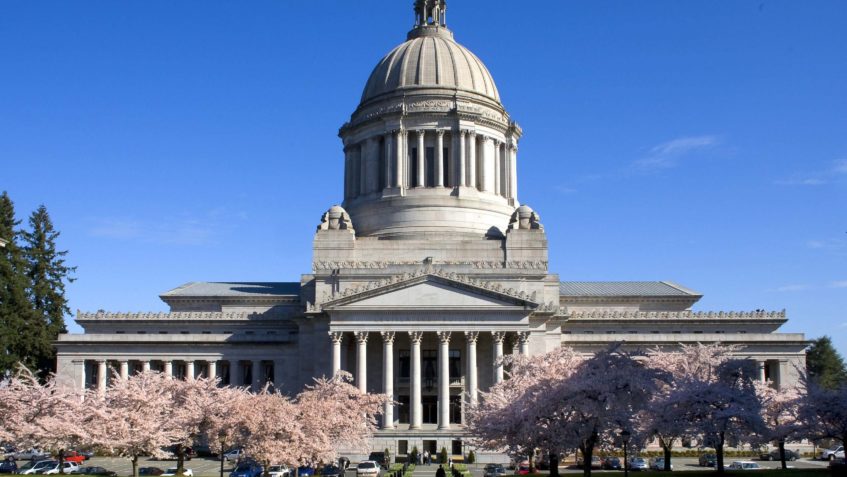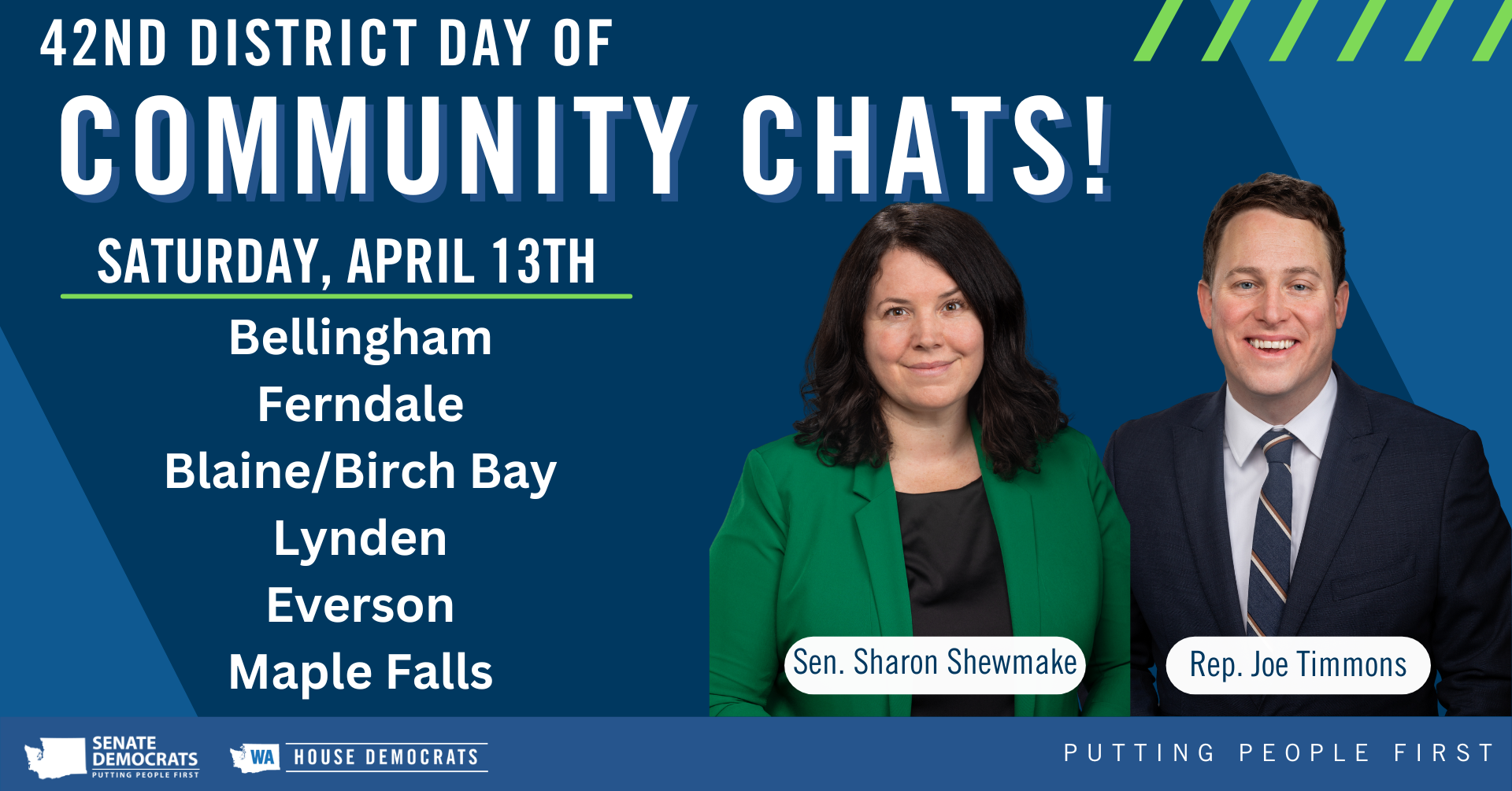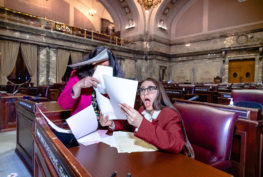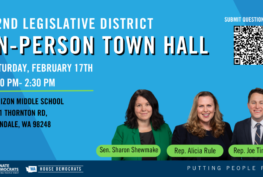Hello friends and neighbors!
This session is moving quickly. We are hosting a town hall this Saturday, shortly after the midpoint of session. After that, things wrap up, and I’ll be back at Western Washington University teaching economics for the spring quarter.
People are often surprised to learn we are a citizen legislature, and many of us have other jobs. How do we make it work? I won’t say it’s easy, but I love teaching at Western and am lucky that teaching at the university level is somewhat modular. I used to teach three quarters every year—fall, winter and spring—but now I legislate during the winter quarter in short session years (the even ones) and during winter and spring quarters in long session years (the odd years).
I’m also lucky that my two jobs reinforce each other. My job as a professor is to research, educate and explain while as a senator, my job is to listen, research, educate other legislators and explain our approach to you. My legislative job has led to new research projects and brought more realistic descriptions of the policy process to my classes. My academic experience with research methods and economics has, I believe, led to better decision-making in my legislative role. But research can only go so far, and good policy requires hearing from people who are affected by it. I rely on you telling me what isn’t working, what is, and how we can make your life—and the lives of all Washingtonians—better. I hope to see you on Saturday, February 17, at Horizon Middle School in Ferndale!
Bill Updates
I’ve introduced quite a few bills this session, but here are a few I want to highlight.
HB 1992 and SB 5828 will add a Superior Court judge in Whatcom County and create new positions to help Whatcom County manage its coming water adjudication.
Water adjudication is basically the legal process of determining water rights for a given freshwater source. Water is an incredibly precious resource; it nurtures our communities, our economy, our agriculture, and our wildlife. Here in Whatcom County, the Department of Ecology is planning a massive water adjudication process beginning this spring. We’re expecting to have to process as many as 25,000 individual claims on water from the Nooksack River watershed.
We need to be prepared. Rep. Timmons and I have worked together and with partners in Whatcom County to give the courts the judicial resources they need to process the water adjudication quickly and smoothy without delaying the multitude of other cases our courts need to resolve.
HB 1992, sponsored by Rep. Timmons, will add another judge to the Whatcom County Superior Court. That extra judge is going to be a huge help, ensuring that the increased case load doesn’t overwhelm our judicial system.
Alongside the new judge, my bill will add new water adjudication commissioners to the court. These will be professionals who have many of the same powers as a superior court judge and a wealth of experience dealing with water rights adjudication. It will also add new water adjudication referees, who will be able to help with smaller issues of fact and report back to the court.
The bottom line is that we are working hard to make sure our court system is working well for all the Whatcom County community members who rely on it!
SB 6017 will allow Point Roberts to use their border-area fuel tax proceeds to fund more types of transportation improvements. The border-area fuel tax is a local transportation tax that localities within ten miles of an international border crossing may impose with voter approval. Right now, the law only allows that tax revenue to be spent on road maintenance.
The border closures were devastating for Point Roberts’ economy, but they have $1.2 million in their border-area fuel tax account they can’t use! If we can get this bill passed, Point Roberts will be able to work with the Whatcom Transportation Authority to, for example, run vans that would pick up kids after school in Blaine so they could play sports or go to clubs, or it could shuttle residents to medical appointments in mainland Whatcom County. It will make the lives of Point Roberts’ families and residents so much easier.
I was so glad to see the bill pass unanimously in the Senate. It’s great news for its chances in the House, but it’s still going to take work and relationship building to ensure everyone understands why this legislation is so dearly needed.
SB 6016 is going to create a Green Energy Community Fund. I’m very excited about this bill. It was born out of work I did to try and understand why some rural communities were skeptical of local renewable energy projects.
I found that their skepticism was born out of a concern for their communities. Agriculture is consolidating, families are moving to the cities, and folks are worried that there won’t be enough local money to fund their schools and services. When something like a wind turbine is built, people who love renewable energy, like me, might find it to be an exciting sign of progress but people with less of an interest in green energy infrastructure might see it as just one more unwelcome change.
As one farmer put it, “we already have cheap energy from the dams, we are worried about losing our school, and all we have left is the view.” When I started to float ideas about ensuring there are local benefits to green energy projects and whether that would change people’s view of a wind turbine, I heard a lot of “yes!”
Thus, this new fund will give up some state tax revenue so we can direct more of the benefits of these projects back to the communities that host them, to their schools and services by providing a tax break to companies that develop and sell green energy if they also invest in local community benefits. When renewable energy projects support the community, residents will look at a wind turbine and see economic growth, development, education for their children, and their place in our coming green economy.
Budgets!
The other big topic for our town hall, besides bills, is our upcoming budget process. Soon, both the House and Senate will propose versions of the three budgets we pass each year: the operating, transportation, and capital budgets.
Our operating budget pays for all our ongoing investments and programs. Schools, health care, and a whole host of state programs like our Sustainable Farm & Fields program are paid for out of the operating budget.
The capital budget funds our state’s physical infrastructure, mostly new buildings. The capital budget is what paid for the Van Zant town hall, the Way Station, Birch Bay Library, affordable housing projects, habitat restoration projects, and other state-funded construction projects!
Finally, there is the transportation budget, which makes investments in our roads, highways, ferries, transit, bicycle and pedestrian infrastructure, and a whole host of transportation programs. As vice chair of the Senate Transportation Committee, this is the budget I help write with my colleagues.
This all might sound complicated, but it really boils down to talking to members of our communities to hear what they need funded and finding partners to make formal budget requests and help us direct state dollars. There will be a lot more budget talk in the coming weeks, and I’m looking forward to keeping you in the loop the whole way through.
Town Hall
Do you have thoughts on these bills or other policies being considered by the Legislature this year? Then you’re in luck! I’m excited to announce that I will be hosting a town hall alongside my seatmates, Reps. Alicia Rule and Joe Timmons. This is an excellent opportunity to hear about what we’re working on this session, have your important questions answered, and share your thoughts about what we should be prioritizing to make your life better.
We’ll be at Horizon Middle School on Saturday, February 17, at 1:00pm, so mark your calendar!
As always, there’s no need to wait for the town hall to reach out to me. You can email me anytime at Sharon.Shewmake@leg.wa.gov to get in touch.




